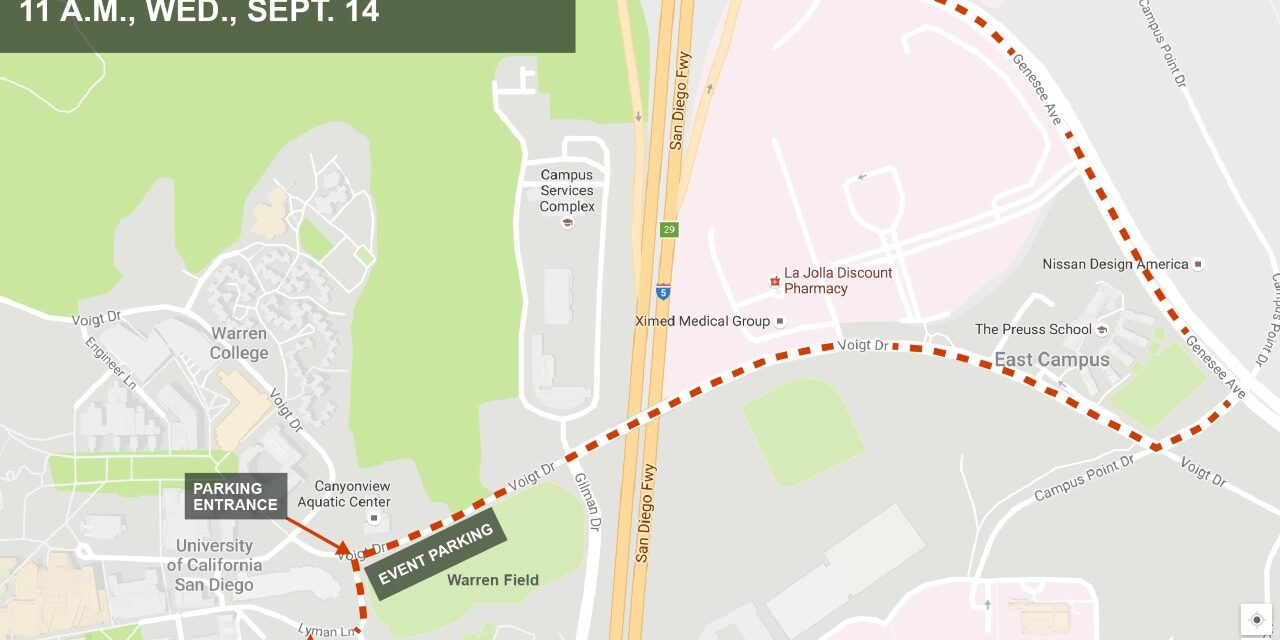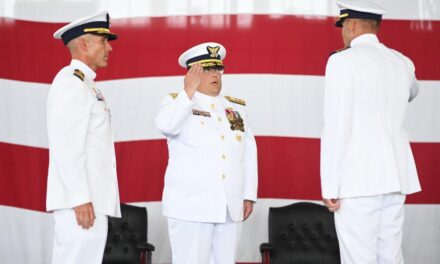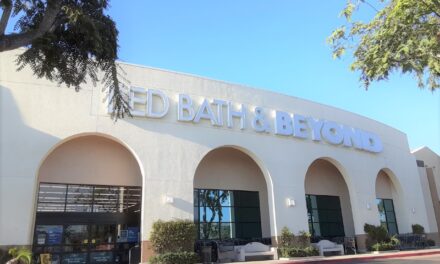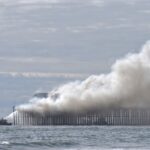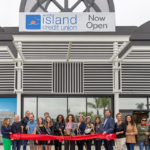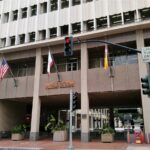SAN DIEGO–A top transit official in the United States committed $1 billion toward building the San Diego region’s newest trolley line, signing an agreement that will provide 50 percent of the funds to extend the popular transit service for 11-miles from Old Town to UC San Diego and the University City community.
The largest public transit project in the history of the San Diego region, the Mid-Coast Trolley Extension will extend the existing Blue Line, building nine new stops along the north coast of San Diego, including near Mission Beach, Pacific Beach, the VA Medical Center, the UC San Diego campus, and the dense residential and commercial areas along Genesee Avenue.
“The Mid-Coast Trolley will bring fast, reliable transit to the places where it’s most needed, including our largest research university and biggest employment center,” SANDAG Chair and San Diego County Board of Supervisors Chair Ron Roberts said. “At the same time, it is an outstanding example of our ability to leverage the region’s local TransNet dollars to bring in outside money to complete major transportation projects.”
The San Diego region was able to garner the 50 percent match for the Mid-Coast Trolley in large part because it has a dedicated local source of funding that provided the other 50 percent match for the project. Revenues from TransNet, the existing countywide half-cent sales tax for transportation, are covering half of the $2.1 billion total project cost.
“FTA is proud to partner with San Diego to bring new transit options to this growing region,” said FTA Acting Administrator Carolyn Flowers. “With the population along the Mid-Coast corridor expected to grow nearly 20 percent in the coming decades, this Trolley extension will offer a much-needed alternative to traffic congestion in the years ahead.”
A ceremonial signing of the Full Funding Grant Agreement – dedicating approximately $1 billion to the project over the course of 10 years subject to annual Congressional approval – took place on the campus of UC San Diego, at a location where the future Pepper Canyon Trolley station will be built. As part of the ceremony, Flowers handed Roberts a symbolic $1 billon check. Metropolitan Transit System (MTS) Board Chair Harry Mathis, UC San Diego Vice Chancellor Gary Matthews, and Cynthia Abair, Acting Director of VA San Diego Health Care System, also spoke during the ceremony.
“This is the culmination of many decades of work, and I’m proud to have played a role in getting this project started years ago when it was just a concept in the University City community plan,” said Harry Mathis, who has served on the MTS Board of Directors for more than 20 years and is currently the board chair.
Pre-construction activities for the project – primarily the relocation of underground utilities out of the project alignment – are already underway. Primary construction is expected to begin this October, with service anticipated to start in 2021.
Once the extension is built, transit riders will enjoy a one-seat ride (no transfers) from San Ysidro to University City. Planners estimate that the project will provide more than 20,000 new transit trips every weekday.
The construction of the Mid-Coast project is expected to produce more than 14,000 new local jobs. Even after the construction is over, the Mid-Coast project will have an estimated $116 million of annual economic impact on the region by reducing congestion, reducing parking needs, and increasing access to jobs. The Mid-Coast corridor supports more than 325,000 jobs. The two ends of the route – Downtown San Diego and University City – account for nearly half of that total.

